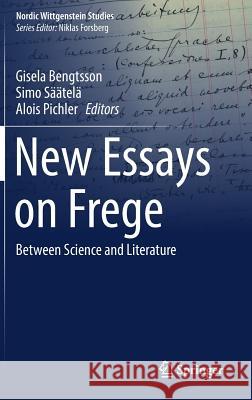New Essays on Frege: Between Science and Literature » książka
topmenu
New Essays on Frege: Between Science and Literature
ISBN-13: 9783319711850 / Angielski / Twarda / 2018 / 185 str.
Kategorie BISAC:
Wydawca:
Springer
Seria wydawnicza:
Język:
Angielski
ISBN-13:
9783319711850
Rok wydania:
2018
Wydanie:
2018
Numer serii:
000801736
Ilość stron:
185
Waga:
0.42 kg
Wymiary:
16.5 x 24.2 x 2.2
Oprawa:
Twarda
Wolumenów:
01











